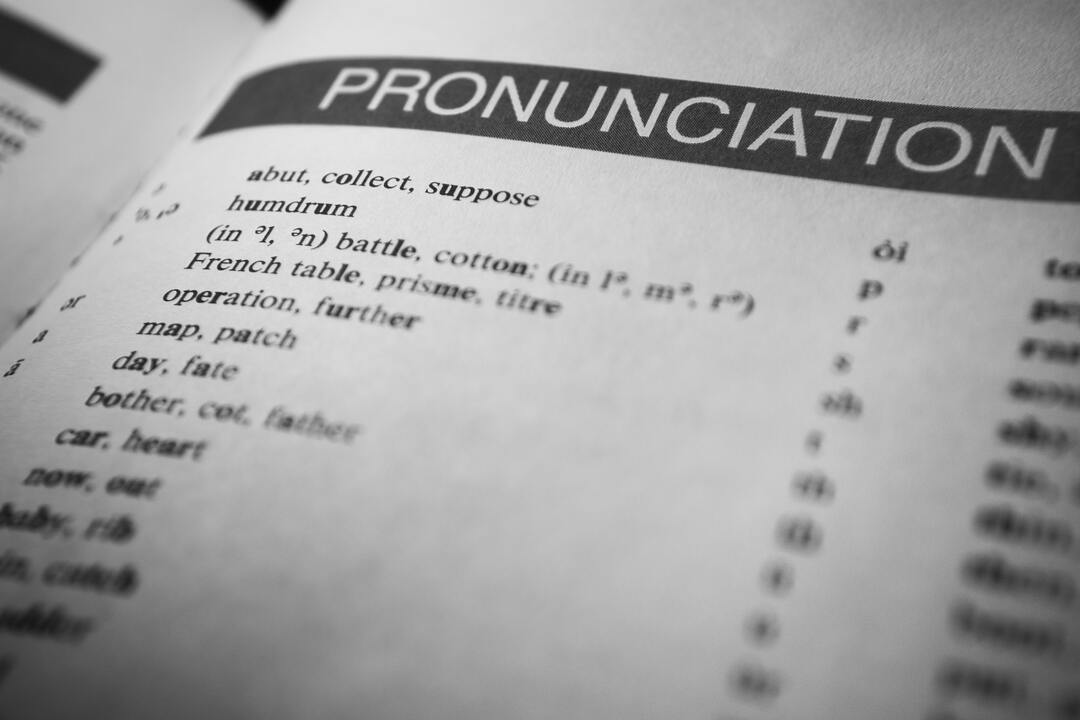
7 Skill in Translation to Help Your Career in the Industry
Translation skills are not merely just changing one sentence to another from a different language. This line of line also needs to be accompanied by certain technical and managerial skills that will help the translator in doing their work. For the people who aspire to work in this industry, these skills are essential. It is common that every industry will implement more than one knowledge to it. With the development of technology, many industries are racing to keep their quality of work while applying the latest technological advancement. Hence, it is important to keep pace with these developments.
Furthermore, skills in management are also important in many industries including translation. The practical knowledge will help translators while doing their job and also help to manage some problems that might occur that are connected with technology or with clients.
If the translation industry is what you want to do in the future, then you need to understand these skis to survive. This knowledge will also be helpful for companies who want to hire translators but do not understand what kind of quality they should have. Keep scrolling and read all the way through.
7 Translator Skills You Need to Have
Translators need to have good language skills, but is that all? Of course, it is not. There are some skills that you need to learn before jumping into the world of translation. If you want to survive in this industry, best to know these skills below.
1. High Understanding of the Language

Translation cannot be done if you do not understand or know the language. Translating something without any base of language knowledge will cause more damage than benefit. Translators need to not just know the language but also need to have high knowledge and understanding of it.
A good translator will have accurate knowledge of the language. That is why, many translators are keen to have some certification to prove that they understand the language in high proficiency. This certification is not really necessary for an experienced translator. However, it will help many new translators when they want to get a job in the future. Moreover, having certification alone will not guarantee you to get a job. That is because this test could not define a translator's knowledge of the industry. You also need to prove that you have advanced knowledge of the language from different aspects. Try to gain this knowledge by reading books, watching television programs, and keeping up with the news from the source language. Having experience in socializing in the language will also improve your skills so it will not sound stiff.
2. Good Writing Skill
Not only have high proficiency in understanding the language, but you also need to have quite a way when writing in those languages. When translating content, you will not just change the language, sometimes you also need to change the structure of the sentence. That is because some languages will be different if translated into another language. It will cause confusion if you keep the writing like the original.
Moreover, you also need to be creative. Keeping the translation to be accurate is good, but being creative will also be needed to keep the translation interesting. To get a higher level of writing skills, you can do some activities. Try to read some novels, take a writing course, and also get a suggestion from your partner. This will help you improve the quality of the content.
3. Deep Cultural Knowledge
Skills in translation are not just merely good with words or having an advanced understanding of the language. A good translation will also need to consider the cultural aspects of their translation. The knowledge will help you understand the significance of the content you are about to translate. Understanding differences in cultural references will also help you to know that there are texts that will sound different if translated. It could have less impact or won't even work the same. Therefore, translators need to know how to translate in a way that the native speakers will understand the meaning without disregarding the original text.
To keep this skill sharp, you can do things like do research about the culture, keep up with the news and trends, converse with native speakers, and many more. From time to time you might feel confused about the differences. However, it will help you understand the language in depth and help you give better results in translation.
4. Good Research Skills

Another skill in translation that is important is good research skills. Sometimes when you do a translation, you will find words or sentences that are confusing. This will lead you to do research. Good research skills will help understand the meaning of the words or sentences to improve the quality of the work. It will also help you define the exact word of choice to translate that sounds right for the native. That is because many words in the dictionary sometimes are not used the same way in daily life. Therefore you need to be able to do research to find the right choice of words.
To sharpen your skill, try to do research on a search engine machine, if the answer is not satisfying, you can try to search from social media or news outlets. You can also discuss it with other fellow translators. Keep track of the words if they are used for more than one time. Keeping a glossary will help translation works in the future.
5. Computer and CAT Skills
It is not a surprise that there are a lot of technological advances in many industries. This does not exclude the translation world either. These days, there are a lot of computer programs and CAT tools that are developed to help the translation process. This could be good news or bad news for you. It is bad news if you are unwilling to learn new things and keep the traditional way of translating. It would be good news if you could adapt and learn new things to help in this industry.
CAT Tools is indeed quite popular in the industry. It could help save time and keep the translation quality high. Learning this skill could help you become more efficient and productive. Many companies will use different CAT tools. Try to adapt to the tools yourself and get help if there is something you don't understand. You will improve through practice and learning. If you are a freelance translator, you can use the tools that work best for you. A simple computer program like Excel or Google Spreadsheet will usually suffice.
6. Time Management
Working with a large bulk or translation will indeed be quite a challenge. If you cannot manage your time well, there will be a lot of deadlines that could be missed. A good translator needs to have this skill in translation, which is time management. Good time management will become a great weapon in the future. Especially if you usually are given a lot of translation work from the start. Without this skill, you will likely drown in work without any improvement. This skill is not useful only for translators who work in a company. Freelance translators will also benefit from this skill. Furthermore, freelance translators will also need to manage their work on their own without any supervision. Therefore, this skill is indeed necessary. To keep your time management in place, try to keep a schedule of work. Divide the translation work into some parts. Keep the deadline from the company by making your own deadline. Then, you could keep the translation quality without burdening yourself.
7. Communication and Business Skills
This skill in translation will work very well as a freelance translator. Working as a freelance translator is not an easy thing. You need to deal with clients, do business matters, and also do the translation work alone. Therefore, you need to understand some basic communication and business skills. Communication is an important thing in business. When trying to contact clients, try to sound as professional as possible. Use formal language in a written email when contacting them. Trying to be friendly is good, but when in business, being professional is a must.
You also need to have knowledge of the business system. Try to understand some documents that are needed for freelancing. Such documents are contracts, NDAs, invoices, and many more. Keep records of your work. Plan email templates that are usually used for business matters. This thing will usually be helpful for freelance translators. Understanding this matter will help build your image for the clients. A satisfied client could give you another opportunity in the future. If there are any complaints from them, try to understand the complaints and solve them as best as possible.
Conclusion
By understanding these 10 skills that are common for translators you will improve your translation work. These skills in translation are needed if you want to have a career in this industry. It is not just about practical skills, but also the soft managerial skills in this industry that will matter in the future. Keep learning and work hard.